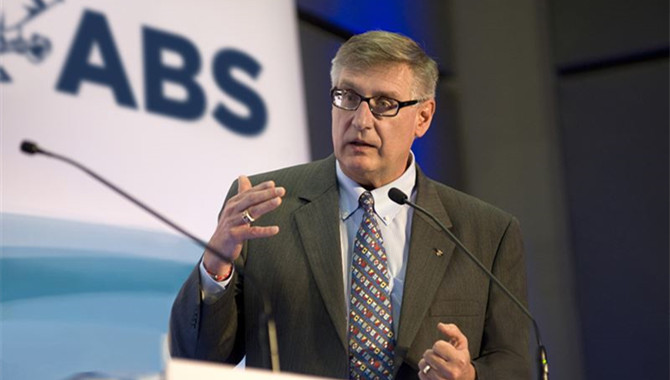The ABS Chairman, President and CEO underscored the pivotal role of shipping in driving the global clean energy transition in a series of appearances at the energy industry conference CERAWeek.
Christopher J. Wiernicki told the annual gathering of ministers and CEOs from global energy and utilities, as well as automotive, manufacturing, policy and financial communities, that shipping was the vehicle for the transition, discussing the hydrogen value chain and evaluating alternative fuels as well as industry decarbonization challenges.
“For shipping, the challenge and opportunity lies in two stories: shipping for shipping, which is the decarbonization of our industry and shipping for the world, which highlights shipping’s role as an enabler of the global green energy transition. It is ships that will be carrying the hydrogen molecule either as ammonia or other hydrogen carriers and shipping that will be carrying liquified CO2. Our industry will therefore be fundamental in supporting the emerging hydrogen and carbon value chains,” said Wiernicki. “The decarbonization of shipping is complex with unique challenges to navigate, let alone predict. It is a multi-dimensional lifecycle hybrid solution with numerous boundary conditions impacted by technology and infrastructure readiness timelines,” he added.
Wiernicki went on to outline the scale of the challenge and shipping’s contribution.
“The biggest challenge we all face in terms of realizing ambitious net zero commitments is the sheer gradient of the curve ahead of us. The pace of the development of hydrogen and carbon value chains is going to be key to managing that curve. The scale and magnitude of the task before us is daunting. It starts with understanding the calculus to get to net zero by 2050. We will need 70 percent zero-carbon e-fuels, which requires 10 times more renewable energy than is currently produced, and 30 percent carbon-neutral fuel, which will require 100 times more carbon capture than we have today – that’s if we are to achieve net zero across the board.
“Ultimately, shipping will be the cornerstone on which all related supply chains will be built. Shipping will be the vehicle for the transition. So, governments must make investments to provide scalability of options and enable commercial first movers.”
The opinions expressed herein are the author's and not necessarily those of The Xinde Marine News.
Please Contact Us at:
media@xindemarine.com


 Ningbo Containerized Freight Index Weekly Commentar
Ningbo Containerized Freight Index Weekly Commentar  Ningbo Containerized Freight Index Weekly Commentar
Ningbo Containerized Freight Index Weekly Commentar  Ningbo Containerized Freight Index Weekly Commentar
Ningbo Containerized Freight Index Weekly Commentar  BIMCO Shipping Number of the Week: Bulker newbuildi
BIMCO Shipping Number of the Week: Bulker newbuildi  Ningbo Containerized Freight Index Weekly Commentar
Ningbo Containerized Freight Index Weekly Commentar  Ningbo Containerized Freight Index Weekly Commentar
Ningbo Containerized Freight Index Weekly Commentar